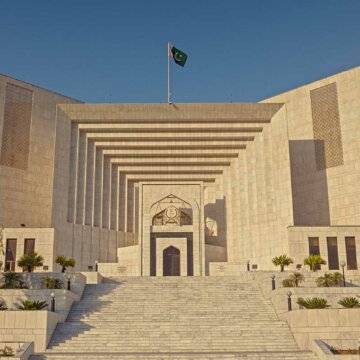- About
- Topics
- Picks
- Audio
- Story
- In-Depth
- Opinion
- News
- Donate
- Signup for our newsletterOur Editors' Best Picks.Send
Read, Debate: Engage.
| topic: | Transparency and Corruption |
|---|---|
| located: | Afghanistan, Pakistan |
| editor: | Shadi Khan Saif |
The rapid collapse of a democratic system of governance in Afghanistan after years of international intervention calls for some scrutiny within the war-ravaged state as well as by the rest of the world.
A main focus of this scrutiny, among others, should be the widespread corruption by the powerful elite which resulted in harsh poverty for the rest of the population and an undermining of the government’s stability. It is a stark reality often overlooked or concealed by the wealthy in third-world countries such as Pakistan and Afghanistan.
Recent revelations about the corrupt workings of top officials in Afghanistan’s previous government expose the underlying reasons behind the fall of the regime, as well as the stark poverty in the rest of the country. Their lavish lifestyles and the shady deals among local and international donors culminated in a fragile democratic state that could not sustain itself, even for a few days, once foreign funding dwindled.
In no way does this justify, glorify or support the forceful rise to power of the Taliban but raises a very principle point about the need to eradicate corruption at the highest levels of government for the sake of nurturing democratic values and peoples’ rights throughout the region.
Similarly, what I am seeing from up close in neighbouring Pakistan is not different at all in terms of the top officials’ indulgence in massive corruption and lavish lifestyles while the rest of the nation reels from the shocks of crippling economic policies as a result of the wrongdoings of the elite.
Hard-hitting duties and taxes are imposed on almost all items and services of basic needs for millions of Pakistanis so that the top elite can arrange funds to pay off international lenders. Meanwhile, inflation has spiked to a rate of nine percent, mostly due to rises in food prices. The lack of regulation for labour rights also propagates the inequality between the working class and the elite.
The recent Pandora Papers leaked by the International Consortium of Investigative Journalists (ICIJ) revealed how hundreds of Pakistani politicians, military leaders and bureaucrats siphoned money into offshore accounts while maintaining a public image as defenders against corruption. The papers also revealed the widespread corruption in Afghanistan, where hundreds of officials were draining the resources of the nation.
However, in contrast to Afghanistan, where armed insurgents backed by regional powers toppled a government and now boast about uprooting corruption, Pakistan has a powerful army at guard against any such attempts on its democratic system of governance. The alleged nexus between this army and extremist groups is, of course, a different tale.
However, it is possible that the continued exploitation of the poor to compensate for the corruption of the elite may not last too long and dangerous avenues could open for different forces, similarly disguised as defenders against corruption, to undermine the little democracy Pakistan has - and imposing a rule far worse than the current democratic one.
Image by: Supreme Court of Pakistan

